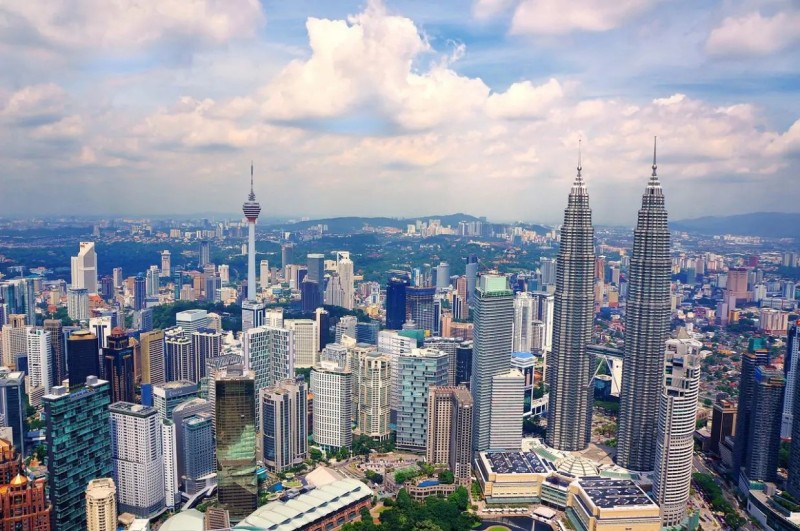
KUALA LUMPUR: The 12th Malaysia Plan (RMK12) has yielded moderate success in steering Malaysia's post-pandemic recovery and advancing development priorities, said economists.
While the national development blueprint delivered meaningful gains in infrastructure, digitalisation and social protection, it fell short of several key economic targets due to a combination of global disruptions and persistent structural challenges.
UiTM's Business Management Faculty senior lecturer Mohamad Idham Md Razak said the five-year plan made notable gains in infrastructure with projects such as the East Coast Rail Link and Pan Borneo Highway.
This, in turn, enhanced regional connectivity and economic integration.
Meanwhile, digital transformation is supported by MyDigital initiative, while 5G network coverage reaching 80 per cent of populated areas and boosting small and medium entreprises digital adoption.
In the energy transition, Idham said Malaysia raised its renewable energy share to 25 per cent, supported by solar and hydropower projects - a move aligned with the nation's carbon neutrality goals.
He added that Bantuan Prihatin Rakyat (BPR) cash aid and MySalam health insurance provided critical support to low-income households, reducing immediate hardship.
These initiatives, he said, demonstrate RMK12's focus on modernisation and inclusivity, although long-term structural reforms remain pending.
"The RMK12 (2021-2025) has achieved moderate success in advancing Malaysia's economic and development goals, though external disruptions and structural challenges have hindered full attainment," he told Business Times.
Doris Liew, an economist specialising in Southeast Asian development, said RMK12 has registered some success in steering post-pandemic economic recovery.
She noted that economic growth remained robust between 2022 and 2024, while unemployment stabilised around 3.0 per cent, near the natural rate, indicating that the economy is approaching full employment.
"Key drivers include continued industrialisation, particularly in the manufacturing sector, increased foreign direct investment inflows and the development of strategic initiatives such as the Johor-Singapore Special Economic Zone.
"Strong job creation in 2024 points to encouraging signs of a growing and relatively resilient economy," she added.
CHALLENGES: PRODUCTIVITY LAG AND INEQUALITY PERSIST
Originally designed to steer Malaysia toward a high-income, inclusive and sustainable economy, RMK12 targeted an annual GDP growth rate of 4.5-5.5 per cent.
Idham, however, said the actual growth hovered around 4.0 per cent in recent years, weighed down by external shocks such as global inflation, post-pandemic supply chain disruptions and geopolitical uncertainties.
Meanwhile, productivity growth, at 1.8 per cent, fell short of the 3.7 per cent target, while income inequality and fiscal constraints persisted due to sluggish wage growth and a high national debt level over 60 per cent of gross domestic product (GDP).
"Social welfare programs like BPR cash aid and MySalam health insurance helped mitigate poverty, but urban-rural disparities remain unresolved," he said.
Idham said RMK12's primary shortfalls were in productivity growth, fiscal sustainability and equitable development.
Despite targeting 3.7 per cent annual productivity growth, he said the country achieved only 1.8 per cent, due to slow automation, skills mismatches and reliance on low-wage labour.
"Fiscal constraints, including high debt levels that is over 60 per cent of GDP and inefficient subsidies, limited public investment in critical areas.
"While urban centers thrived, rural and East Malaysian regions saw slower progress in infrastructure and job creation, exacerbating inequality," he said.
Liew said deeper structural challenges persist, noting that Malaysia remains below the high-income threshold and has made only gradual progress in advancing up the manufacturing value chain.
She said human capital constraints, especially in science, technology, engineering and mathematics (STEM) continue to weigh on the country's competitiveness.
The National Semiconductor Strategy (NSS), which aims to train 60,000 engineers, appears to be falling behind schedule, a sign that the economy's structural composition has seen little meaningful transformation over the past five years.
"Moreover, the transition towards electric vehicles and broader sustainability goals has been relatively sluggish," she said.
Source: https://www.nst.com.my/business/economy/2025/07/1251864/malaysia-makes-solid-progress-under-rmk12-despite-global-headwinds%C2%A0

